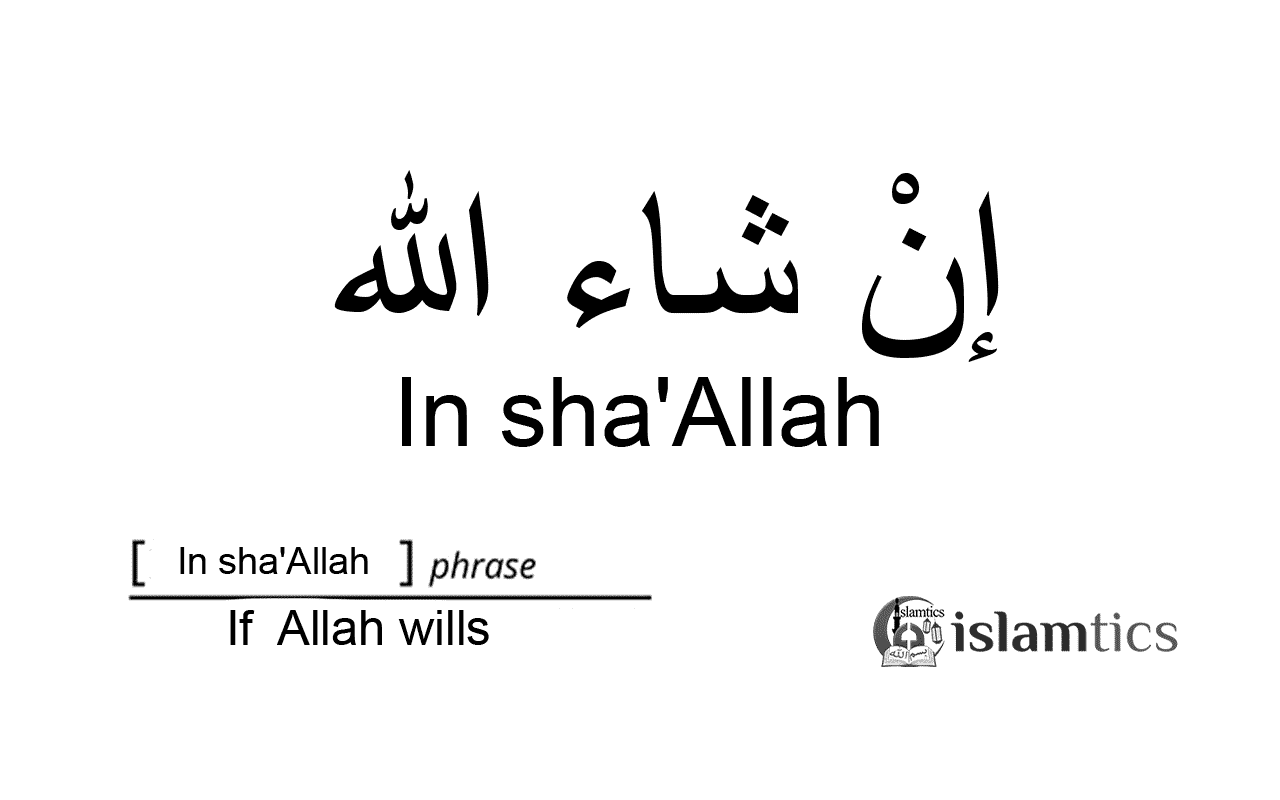The Profound Significance Of Inshallah Meaning In Everyday Life
In the tapestry of languages and cultures, certain phrases resonate with profound meaning, encapsulating a world of hope and faith. One such phrase is "inshallah," an Arabic expression that translates directly to "if God wills." This term is not merely a linguistic artifact; it is an integral part of the daily conversations among Muslims and many in the Arab world. While its literal translation is straightforward, the implications and emotional weight it carries are far more complex, reflecting a deep-seated belief in divine will and the unpredictability of life.
Inshallah meaning extends beyond a simple acknowledgment of future intentions; it embodies a sense of optimism, humility, and acceptance of fate. Whether used in casual conversations about plans for tomorrow or significant life events, the phrase serves as a reminder of the limits of human control and the overarching power of the divine. For many, uttering "inshallah" is not just a habit; it is a way to express hope while acknowledging that the ultimate outcome lies in God's hands.
As we delve deeper into the inshallah meaning, we uncover layers of cultural significance and emotional depth. The phrase is often interwoven with discussions about life’s uncertainties, rendering it a powerful tool for navigating the complexities of existence. In a world that often feels chaotic and unpredictable, "inshallah" stands as a beacon of faith, encouraging individuals to remain steadfast in their aspirations while surrendering to the greater plan.
What is the Inshallah Meaning in Different Contexts?
The inshallah meaning can vary significantly depending on the context in which it is used. While it primarily translates to "if God wills," the phrase can take on different connotations based on the situation at hand. For instance, in casual conversation, it might simply express hope for a planned event, while in more serious discussions, it may reflect a deeper reliance on faith during times of uncertainty.
How Do People Use Inshallah in Daily Life?
In everyday interactions, "inshallah" functions as a verbal cue that acknowledges the unpredictability of life. Here are some common scenarios where this phrase might be employed:
- When making plans: "I'll see you tomorrow, inshallah."
- In discussions about future events: "We're hoping to go on vacation next month, inshallah."
- When discussing health or well-being: "I hope to recover soon, inshallah."
These examples illustrate how the inshallah meaning transcends mere words, embedding itself within the cultural fabric of communities and conversations.
What Cultural Significance Does Inshallah Hold?
The cultural significance of inshallah is profound, reflecting a collective consciousness that values faith and trust in God. In many Muslim-majority countries, the phrase is used frequently in both formal and informal contexts, serving as a linguistic bridge that unites individuals in a shared belief system. It is a reminder that, despite humans' best efforts, the ultimate outcome of any endeavor is beyond their control.
How Does Inshallah Foster a Sense of Community?
In the context of community and relationships, the use of inshallah fosters a sense of shared values and connection among individuals. When someone says "inshallah," it signifies not only their personal hope but also their acknowledgment of a larger, collective faith. This shared expression can enhance social bonds and create an atmosphere of mutual support, particularly during challenging times.
Can Inshallah Be Misinterpreted?
While the inshallah meaning is generally understood and embraced within its cultural contexts, it can sometimes be misinterpreted by those unfamiliar with its significance. For instance, in Western contexts, it may be viewed as a procrastination tactic or a way to avoid commitment. However, this interpretation overlooks the depth of faith and hope that the phrase embodies for those who use it regularly.
What is the Historical Background of Inshallah?
To fully appreciate the inshallah meaning, it is essential to understand its historical and linguistic roots. The phrase derives from Arabic, where "in" means "if," and "shallah" translates to "God wills." The concept of divine will is prevalent in Islamic teachings, emphasizing the belief that all events occur according to God's plan. This theological underpinning gives inshallah its weight and significance, making it a phrase rich in cultural heritage.
Is Inshallah Used Only in Islamic Contexts?
While predominantly associated with Islamic culture, the use of inshallah is not confined solely to Muslims. It has found its way into the vernacular of various communities, especially in regions with significant Arab influence. Consequently, individuals from diverse backgrounds may adopt the phrase, appreciating its connotations of hope and faith without necessarily adhering to the religious frameworks that birthed it.
What Lessons Can We Learn from Inshallah Meaning?
The lessons derived from inshallah meaning extend beyond language and culture; they resonate with universal human experiences. Here are some key takeaways:
- Embrace Uncertainty: Life is unpredictable, and learning to accept uncertainty can lead to a more peaceful existence.
- Foster Hope: Maintaining hope in the face of challenges can empower individuals to persevere.
- Practice Humility: Recognizing that not everything is within our control encourages humility and gratitude.
In conclusion, the inshallah meaning encapsulates a rich tapestry of faith, cultural significance, and human experience. By embracing this phrase, individuals can navigate life's uncertainties with grace and a sense of community, affirming their hopes while acknowledging the divine will that guides their path.
Article Recommendations
- Draker8_0.xml
- Socialmediahot6_0.xml
- Draker9_0.xml
- Story About Jorden On Nancy Grace Podcast
- Wolf Cut Short Hair
- Socialmediahot9_0.xml
- Shameless Tv Show Actors
- Draker6_0.xml
- Maria Cedar
- Kaitlyn Krems Onlyfans Leaked




